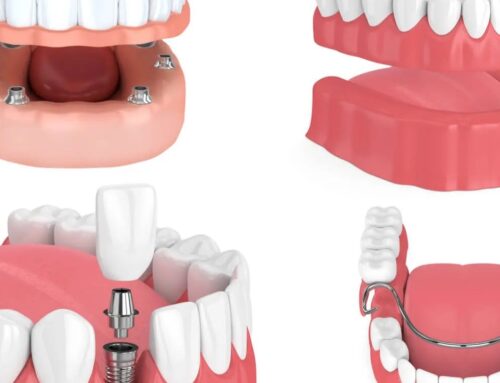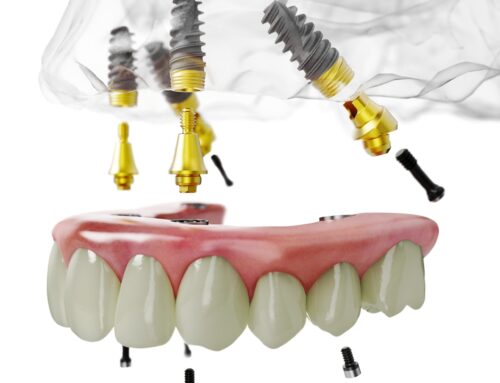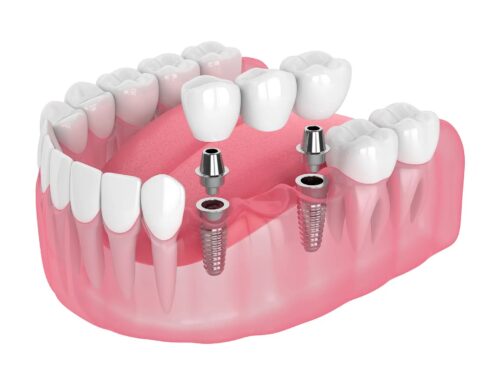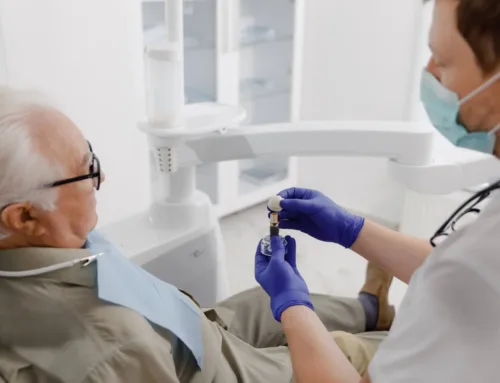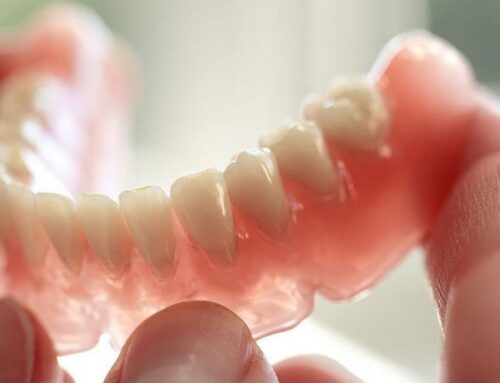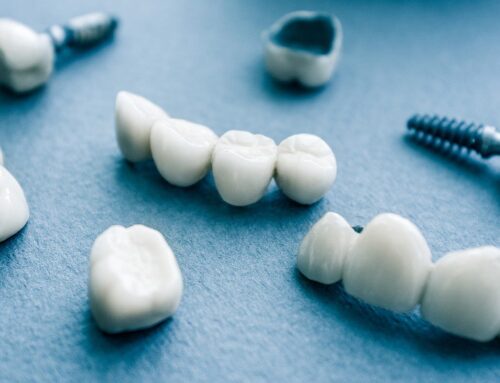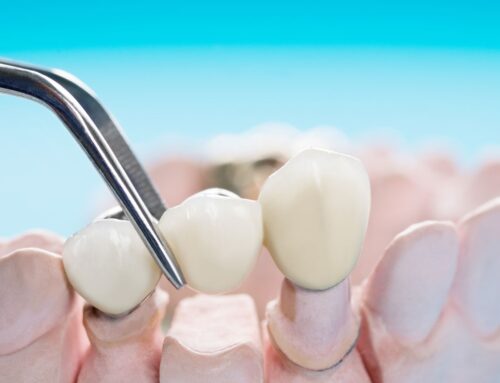Understanding the Costs of Dental Implants
Keeping your mouth healthy requires you to be diligent about your oral care habits, including brushing, flossing, and regular dental checkups. In addition, if you happen to lose a tooth either as a result of an accident or other type of dental condition, it’s important for your oral health that you have the tooth replaced as soon as possible in order to prevent future problems from developing.
However, when you visit your dentist to start the process of having a missing tooth replaced, how will you decide which option is the best choice for you? Well, several factors will be considered, and your dentist will provide you with the best set of options for you to choose from. Your dentist will look at things like your current state of dental health, the number of missing teeth that need to be replaced, and the type of teeth that are missing.
Of course, these aren’t the only criteria that are important when choosing a tooth replacement method. Cost also plays a role for many patients, and this is what we are going to address in this article. The cost of replacing a tooth can vary greatly and depends on the method and materials used to perform the treatment. Here, we will look at the different costs associated with having a tooth replaced using dental implants, as well as some of the other options that may be offered to you. Let’s start with a quick look at why people end up missing teeth in the first place, and how these reasons can affect the choice of treatment.
Why would someone lose a tooth?
There are several different reasons that a person may end up with a missing tooth at some point in their life. An accidental impact to the jaw, such as with a trip and fall or perhaps an unexpected collision during a physical sporting activity, may cause one or more teeth to become loose or even lost. There are also some oral health conditions that can cause teeth to become loose, such as gum disease and periodontitis. Excessive decay of a tooth is also a potential reason that may necessitate the extraction & removal of the affected tooth.
Whether you have lost a tooth as a result of an accidental impact, or due to another dental health condition, it’s important to have the lost tooth replaced as soon as possible. When a tooth is lost, the surrounding areas in the jaw begin to experience effects as a result. Over time, the bone in the area of the lost tooth can lose mass and density, weakening the bone and putting the patient at risk. Proper treatment for a lost tooth can help prevent or minimize these negative effects, especially if treated promptly.
How do dental implants work?
Of all the methods for replacing lost teeth, it’s generally accepted that dental implants offer a solution that is fast and effective, and also mitigates the potential for bone loss or other oral health problems that could result from lost teeth. Dental implants appear simple in design but are made from advanced dental materials that provide many benefits to the patient.
Dental implants consist of three main components; the fixture, the abutment, and the prosthesis. The fixture is what securely anchors the implant in to the jaw of the patient and is made from a metal or composite material engineered to fuse with bone and provide a solid, permanent connection. The abutment is the top portion of the fixture that is used to attach the prosthesis to the fixture using a secure, physical connection. The prosthesis is the technical name for the artificial tooth that will be the visible portion of the implant, also known as the crown.
The prosthesis is customized to precisely match the colour and shape of natural teeth, meaning that the final result is virtually indistinguishable from the other teeth in the mouth of the patient. This is one of the most desirable benefits of dental implants, as they offer a very natural looking and natural feeling permanent solution for lost teeth.
What are the costs of a dental implant?
The costs associated with dental implants are generally broken down in to two categories. The first portion of the cost is for the placement of the implant, which can range from around $275 to $450 per implant. The cost of the placement varies due to many different factors, such as the location in the patient’s jaw and the amount of customization that may be needed.
The other portion of the cost of a dental implant is for the prosthesis, or crown. Crowns can range in cost anywhere from $1000 to $3000 or more, depending on the number of teeth that are being replaced and other factors related to the current state of oral health of the patient.
Of course, these cost estimates must be taken as a general idea only, as there are many reasons why the cost of dental implants may go up or down. It’s also important to note that a patient may have dental benefits that could include some level of coverage for tooth replacement or implants. If you’re unsure on whether your dental benefit package includes coverage for implants, we recommend that you call your coverage provider today for more information.
What are the other options for replacing a tooth?
Dental implants are not the only option available to patients to help solve the problem of missing teeth. While implants are usually preferred due to their many benefits as a permanent solution, there are some situations where an alternative may be offered by your dentist.
Bridges are a common option for solving the problem of missing teeth and come in several different styles depending on the location of the teeth that are being replaced. Tooth-supported fixed bridges use the remaining natural teeth that are adjacent to the missing tooth as the supports to hold the bridge in place securely. This requires the adjacent teeth to be filed down and shaped in order for the bridge to be fastened on top of them.
Another type of bridge is the resin-bonded bridge, which is also known as a Maryland bridge. These bridges are affixed to the supporting teeth using a strong dental adhesive, applied to the interior surfaces of the adjacent teeth. Because this type of bridge is not as strong as other types, it is generally only used to replace a single front incisor tooth that won’t come under the same pressure from chewing or grinding that other teeth experience.
Partial dentures are another option that may be considered in certain situations, although usually only for patients where multiple teeth are being replaced. For single missing teeth, implants and bridges are better options for treatment.
What are the advantages of dental implants compared to other methods?
It should be noted that even though there are other options besides implants for solving the problem of missing teeth, no other method provides as many permanent oral health benefits as implants do. For example, bridges require support from surrounding teeth in order to work, which requires in the pressure that would normally be applied to the missing tooth to be distributed to the two supporting teeth, increasing the strain on them. Since dental implants function in a nearly identical manner to a natural tooth, there is no additional stress added to the adjacent teeth.
As we mentioned earlier, missing teeth also have the potential to cause a loss of bone density in the jaw. Bridges and dentures do not provide a solution to this problem, as they are not affixed directly to the bone of the jaw. Since dental implants are attached securely to the bone itself, the normal stimulation to the area that results from chewing and other jaw motions is more natural and mitigates the dangers of bone loss from missing teeth.
Dental implants also offer greater peace of mind when it comes to hygiene, since they are able to be cleaned in a virtually identical manner to your natural teeth. Overall, the simplicity of the dental implant treatment, along with the fact that it is a permanent treatment, make this the preferred method for treating missing teeth for the majority of dentists and their patients.
How can you get started with dental implants?
If you are considering the different options for replacing a missing tooth, the best thing to do is schedule a free, no-obligation consultation with the professionals here at Georgian Dental®.
Contact our team today to arrange for an appointment, and we’d be glad to provide answers to all your questions and explain how dental implants can help get your smile back in style.
Appointment Request
If you’re interested in any of our procedures, and would like to meet with one of our dentists to discuss options, costs and get additional information, complete this short form and we’ll give you a call to arrange for a no-obligation appointment at our Barrie clinic.

